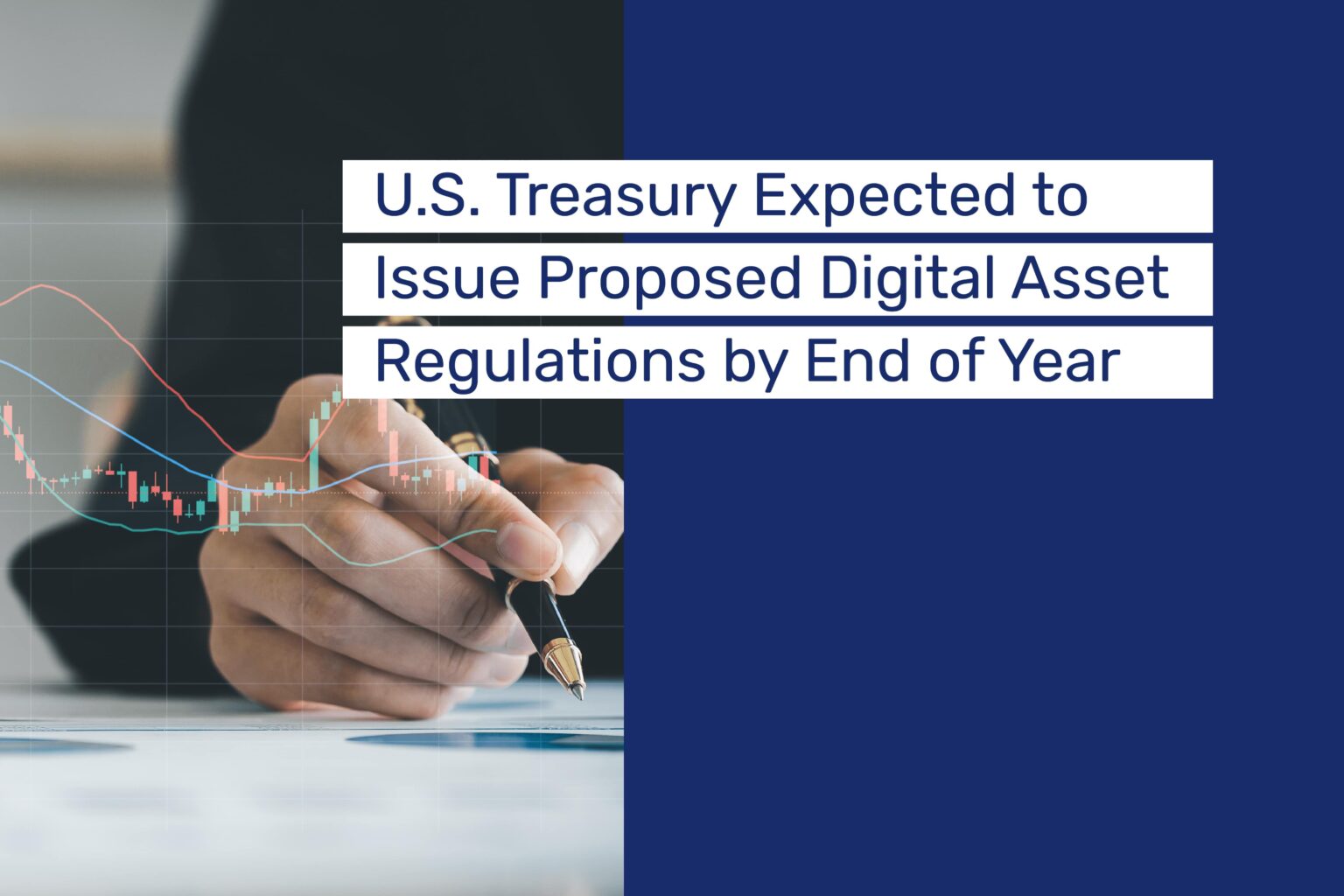After much industry anticipation, Treasury stated that digital asset tax reporting requirements and effective dates outlined in the Infrastructure Investment and Jobs Act will be clarified by “later this year”
It goes without saying that the digital asset industry has been eagerly awaiting the U.S. Treasury Department to provide updated Internal Revenue Code regulations. While those regulations still remain outstanding, there is increased clarity on a timeline.
At a recent conference by the Securities Industry and Financial Markets Association, a senior Treasury official, Erika Nijenhuis, said:“We expect to issue the proposed regulations later this year… We are aware that clarity regarding effective dates is important to market participants, and we intend to address those issues in the forthcoming guidance.”
Last year, Congress passed a law called the Infrastructure Investment and Jobs Act (IIJA) that will significantly expand tax reporting requirements for “digital asset brokers.” Despite passing the law nearly a year ago, industry participants have been eagerly awaiting official clarification from the Treasury as to how exactly the law should be applied. Who exactly will be covered under the definition of a “digital asset broker” that regularly facilitates the transfer of digital assets on someone else’s behalf (i.e. will centralized exchanges, decentralized protocols, and NFT marketplaces be covered)?
With the existing and ambiguous provisions of the current law, any potential broker should be prepared to track and report cost basis (or the initial acquisition price) for digital assets to both individual users and the IRS by January 1, 2023 – a deadline that is fast-approaching. Given the significant operational changes needed to satisfy such requirements, industry participants have been hoping for Treasury to clarify the reporting requirements and necessary deadline.
Potential digital asset brokers should be ready to act on the official blueprint for digital asset taxation within the next month or so. Keep in mind, however, that once the proposed Treasury regulations drop there will be a further 60 or 90-day comment period until the rules are officially set in stone (but the final content will be unlikely to significantly change).
How Taxbit can help
A recent article in the leading tax and accounting publication TaxNotes noted of this recent comment from Treasury: “Practitioners have also noted that information reporting will be an arduous task for crypto brokerages and will likely need to be delayed until software catches up to meet the demand.”
When it comes to building enterprise-grade software to satisfy upcoming regulations, Taxbit is building the industry solution. Our recent launch of Cost Basis Interchange (CBI) makes it exceptionally easy for digital asset brokers to classify broker and non-broker wallet address transfers in order to stay aligned with ever-evolving regulatory requirements.
In advance of the CBI launch, Taxbit’s CEO Austin Woodward noted:
“With the launch of CBI, digital asset brokers now have a forward-looking solution to address not only compliance needs but also one of the industry’s largest user experience challenges – missing cost basis. CBI is one seamless API that makes cost basis interoperable.”
Learn more about Cost Basis Interchange and its key features:
- Supports unlimited transactions
- The safest, most accurate, and scalable solution on the market
- All customer PII and transfer data hosted in Taxbit’s secure server
.png)


